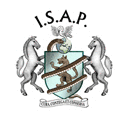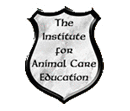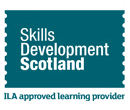
This course is designed to provide a grounding for further studying of animals in general and their behaviour. If you do not feel confident in your knowledge of animals or you have been out of education for some time this course is an ideal way to put your fears to rest. You do not need to complete the whole course and you can choose the order or number of modules you wish to do before progressing on to your next course. There is no entry requirement other than a desire to learn about animals.
Course Modules
1. The Principles of Zoology
- How and why animals are classified
- The 7 characteristics of an animal
- The importance of classification
- How to classify an mammal
- The animal cell
- Basic anatomy and physiology
- Skeleton and Muscles
- Respiration
- The nervous system
- Digestion
- Herbivores, carnivores and omnivores
- Asexual and sexual reproduction
- Hermaphrodites
- An introduction to animal behaviour
2. Mammals
- What is a mammal
- The Marsupials
- The Monotremes
- Elephants and an introduction to their behaviour
- Whales and Dolphins
- The Pinnipeds
- The Primates
- Senses of smell, sight, hearing, touch
- Chimpanzees
- The Carnivores
- Cats: Wild and domestic
- Introduction to mammal behaviour.
- Migration
- Hibernation
3. Birds
- Introduction to birds
- The bird skeleton
- Feathers and their importance
- Beaks and digestion
- The Senses
- How birds communicate
- Nests
- How birds fly
- Methods of flight
- Eggs and egg laying
- Waterfowl (Anserifores)
- Swans
- Geese
- Ducks
- Birds of prey (Falconiformes)
- Perching birds (Passeriformes)
- Fowl-like birds (Galliformes)
- Ptarmigan (pronounced Tarmigan), Grouse and Capercaillie
- Pheasants
- Jungle Fowl
- Peafowl
- Turkeys
4. Reptiles and Amphibians
- History of Amphibians
- How do amphibians breathe?
- Senses
- How do they get about?
- What do amphibians eat?
- How do they reproduce?
- Frogs and Toads
- Life cycle of the frog (Rana temporaria)
- Salamanders and newts
- Caecilians
- History of Reptiles
- The senses
- Body temperature
- Reproduction
- Chelonians
- Land turtles (including tortoises)
- Fresh water turtles (terrapins)
- Sea turtles
- Lizards and snakes
- The crocodilians
5. Insects
- History of insects
- General features of an insect
- Insect wings and flight
- Insect Senses
- Life cycles and development
- Dragon flies and Damselflies
- Butterflies and Moths
- Social Insects
- Bees
- Bumblebees
- Ants and Termites
- Wasps
- Beetles
- Grasshoppers
- Fleas
- Spiders
6. Fish
- History of Fish
- Fish senses
- How do fish breathe?
- What fish eat?
- Reproduction in fish
- How fish swim?
- Scales
- Types of marine (sea) fish
- Sharks
- Seahorses
- Flat-fish
- Barracuda
- Tuna
- Eels
- Salmon
Study Level 2The study Level relates to the how demanding the course is. 1 is beginner and 5 is HND / Foundation Degree level.
6 Module CourseThis course is delivered in 6 study modules which need to be passed to gain the qualification.
All Compass Education Ltd coursesare written by industry experts and provided exclusively in the UK by Compass,they are not available anywhere else. Courses are unique to Compass andaccredited by Ofqual regulated Awarding Bodies and/or Industry ProfessionalBodies as indicated in each course description. In common with the overwhelmingmajority of private educational provision in this sector they are not a part ofthe RQF or SCQF and they do not appear on Ofqual's register of qualifications.
Reviews
No reviews were found.



